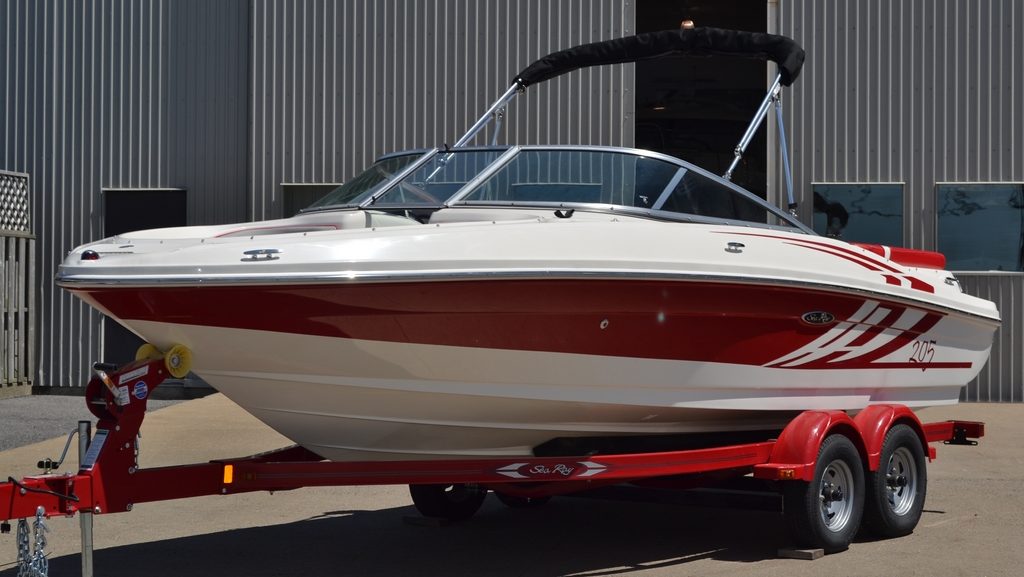In my first article on importing used boats from the U.S., we considered the question “What constitutes a good deal?” Esentially, it boils down to comparing the conditions of sale for a used American boat and a similar one offered by a Canadian dealer.
We now know that determining whether you’re getting real deal on a used boat involves comparing the full price (price including delivery) with the cost of buying a comparable boat from a dealer in our country. In addition to price, buyers should consider post-sale benefits and services available from Canadian dealerships, as cross-border shopping implies buying a boat “as is” without any warranties, after-sale services or legal recourse under consumer protection laws.
Although the first step in assessing whether you’re being offered a good deal is weighing the Canadian price against the total price of an American boat (including import costs), it’s equally important that you don’t lose sight of quality – that means the boat, its engine and any related equipment. The question is, how do you go about assessing the quality of a boat in the U.S., sold without after-sale support or a warranty? In other words, what’s the key to getting a good deal in the States?
A pre-purchase survey of a used boat is by far your best bet when importing a used boat. Regardless of where you live, buyers need to get a solid assessment of a boat’s condition, its engine and its equipment – this is without a doubt the most important aspect to consider before proceeding with a purchase.
Visual inspection and survey
Cross-border shoppers who are willing and able to travel (sometimes quite a long distance) to examine a boat have the distinct advantage of getting a first-hand look at it. Plus, you will quickly find out whether or not the craft genuinely makes your heart beat faster – and isn’t that always an important consideration when buying a boat?
But a marine survey (conducted by a recognized professional who is independent from the seller) is still the best way to get a fair and thorough assessment of the boat. The survey, which usually includes a signed report along with recommendations, allows you to make an enlightened decision about the transaction.
A quick internet search will bring up a list of recognized marine surveyors in each region of the U.S. This includes the SAMS* and NAMS**. Fees vary from $15 to $25 per linear foot. With permission from the seller, potential buyers can also ask the surveyor to take the boat out for a sea trial. If you want to get a complete picture about the boat’s condition, how well the engine runs and its equipment, there’s nothing like testing it on the water.
A pre-purchase survey involves surveying the boat and its components before proceeding with a more detailed inspection (interior and exterior) of its hull, deck and structure. The hired professional will also be able to tell you whether any repairs made to the boat were done properly. Plus, he or she will explain any maintenance recommendations that should be considered in the short and long term. Finally, he or she will assess its market value.
All marine surveyors urge their clients to attend the inspection and tend to proudly share their knowledge with you.
Most surveyors, however, draw the line at mechanical inspections. If you want one done, you will have to bring in a technician for a couple of hours. The marine surveyor can nonetheless attend the mechanical inspection, which generally involves computerized readings, a cylinder compression test, assessing the engine start-up and its connection to the propeller.
A sea trial rounds off the experience. Ideally, sea trials should be conducted with the surveyor, mechanical technician, seller and buyer – though it can be tricky to schedule everyone at the same time. Regardless, buyers should trust the surveyor’s professional opinion at this important phase of the assessment.
In sum, a pre-purchase survey completed by an independent expert is the key to establishing whether or not you’re getting a real deal on a used boat imported from the United States.
*SAMS Society of Accredited Marine Surveyors www.marinesurvey.org/
** NAMS National Association of Marine Surveyors www.namsglobal.org/

